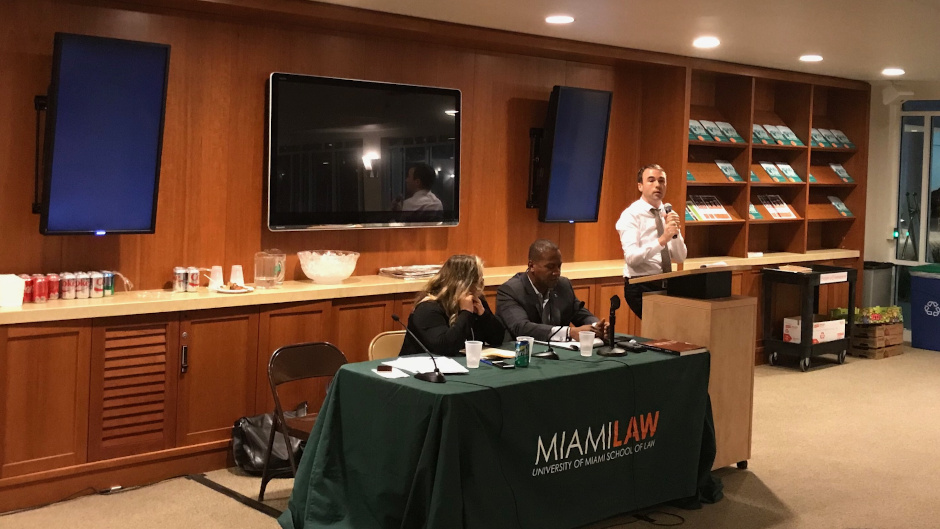“The purpose of the ACLS is to bring the culture and the volume of the Caribbean to the University of Miami,” said Alexandra Trice, the president of the Association of Caribbean Law Students. She and her fellow student leaders from the ACLS organized an informative, conversational event featuring experts such as Victor Williams, a Special Agent at the U.S. Department of Homeland Security.
Williams coordinates a human trafficking task force made up of over 250 members. He emphasized education and community awareness as important factors in combating human trafficking.
“Every day a child walks out the door, they’re vulnerable to the world unless they’ve been educated on these issues, on what to look for,” he said. “If we miss details on human trafficking, we don’t know what it looks like, smells like, and immediately know what to do, we’re part of the problem.”
According to the National Human Trafficking Hotline website, there were 556 cases of human trafficking reported in Florida in 2016. Williams said that Miami-Dade County is a significant contributor to this number as one of the top municipalities in the nation for trafficking young people.
“A lot of people don’t realize (for this event specifically), how Miami is a hub for human trafficking,” Trice said. “And because we’re so close to the Caribbean, it’s so easy to get in and out of Miami without really anyone knowing about the problem.”
Brenda Mezick, an expert in domestic human trafficking who works at the office of the State Attorney, also spoke on the panel. Mezick discussed the role of trauma in human trafficking and its limiting effects on victims’ recoveries.
“What I’m dealing with, what Vic [Williams] is dealing with, are the minds of broken people,” she said. “This is a neurological experience. Too much trauma too fast, too much trauma too long, will create physiological effects which will alter the brain’s actual structures over time.”
Mezick went on to highlight the fact that child trafficking is particularly nefarious, as the victims are vulnerable to permanent neurological damage because their minds are still developing while they are experiencing trauma.
Based on her experience, Mezick estimates that less than a quarter of the children that enter the public foster care system for child trafficking victims end up finishing high school. “These kids can’t make it through the G.E.D., and we can’t put them back into schools,” she said. “They need personal tutors, and we haven’t even begun to think that through.”
“We really haven’t done enough to look at how we’re addressing the issue here in the United States,” she said. “If we’re going to be a model for the world, we need to clean up our own house.”
When Trice was asked what she hopes students would take away from the event, she said, “awareness. I hope that people are able to look out for it in their own communities, and see children, and their own families, friends, who seem to be in bad situations.”
Special Agent Williams encourages those who are interested in becoming involved with the human trafficking taskforce to visit the taskforce’s website, www.sfhumantraffickingtaskforce.org, where they can learn of upcoming meetings and trainings that are open to the public.
To close, Williams reminded the audience that education is crucial when facing the issue of human trafficking: “At the end of the day, the only defense for the community is educating themselves about this issue.”

